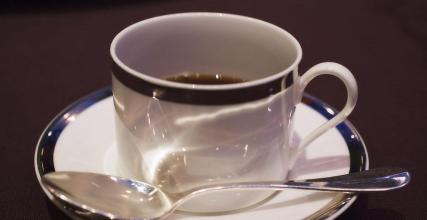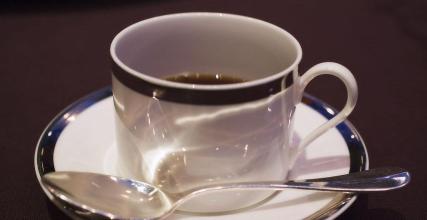A long aftertaste of Puerto Rican coffee flavor description, grinding characteristics, taste manor introduction
With the advance of modernization, the Americanization of Puerto Rican culture is becoming more and more obvious. However, people of insight on the island believe that Puerto Rican culture should not be assimilated into the mainstream culture of the United States, otherwise the national identity of Puerto Rico will be lost. This proposition is closely linked to the debate over the political status of Puerto Rico and has become a political issue of concern to every Puerto Rican. The issue of language is one of the focuses of debate. When the people's Democratic Party came to power, it regained the priority of Spanish, but as time went on, English became more and more important. The direction of the development of Puerto Rican culture is still an open question. Education is relatively developed. The government has always attached importance to education and provides free and compulsory education for students aged 6 and 16. Classes are taught in Spanish, but English is a compulsory course. Higher education is well developed
Yaocote's choice of coffee, which is grown only on three farms in the southwest of the island, is fragrant and has a long aftertaste. This kind of coffee is very expensive and its flavor is comparable to that of any other coffee variety in the world. In the Yauco area, the coffee is owned and operated by local planters. The mountain climate here is mild, the plants have a long mature period (from October to February), and the soil is of high quality clay. Some old varieties of Arabica coffee beans are grown here, although the yield is lower than other varieties, but generally of high quality. People here have been using an ecological and intensive planting method, using only some low-toxic fertilizers and chemicals, and adopting mixed crop planting measures to make the soil more fertile. When it comes time to pick coffee beans, people walk back and forth between coffee trees, picking only fully ripe coffee beans, and then wash them in a roller device for 48 hours.
Yaocote chose coffee beans to be preserved in shells before they were shipped, and the skins were not removed until the order was shipped to ensure the best freshness of the coffee. Relevant U.S. government staff, such as FDA and USEA, will also be present when the goods are submitted, and they work to monitor producers' compliance with federal regulations. There are also staff from the local evaluation board, who take 1 bag out of every 50 bags as samples and use international gauges to evaluate their quality. Puerto Rico has a low-wage system, with a per capita hourly wage of $4.20 in 1991. Still, manual workers earn more than workers in many other coffee-producing countries, as long as Hawaii and Yamaja are on a par. Another problem facing the Puerto Rican coffee industry is that Puerto Ricans have better employment prospects because of their relatively high cultural quality in the Caribbean. Yaocote's choice of coffee, which is grown only on three farms in the southwest of the island, is fragrant and has a long aftertaste. This kind of coffee is very expensive and its flavor is comparable to that of any other coffee variety in the world. In the Yauco area, the coffee is owned and operated by local plantation owners. The mountain climate here is mild, the plants have a long mature period (from October to February), and the soil is of high quality clay. Some old varieties of Arabica coffee beans are grown here, although the yield is lower than other varieties, but generally of high quality. People here have been using an ecological and intensive planting method, using only some low-toxic fertilizers and chemicals, and adopting mixed crop planting measures to make the soil more fertile. When it's time to pick coffee beans, people walk back and forth between coffee trees, picking only fully ripe coffee beans, and then washing them in a roller device for 48 hours.

Important Notice :
前街咖啡 FrontStreet Coffee has moved to new addredd:
FrontStreet Coffee Address: 315,Donghua East Road,GuangZhou
Tel:020 38364473
- Prev

Dominica Santo Domingo Coffee with rich flavor description, grinding degree, taste, fine coffee.
In 1677, about 4,000 French lived in 11 villages in the west of the island. In 1697, France and Spain ceded the western part of the island to France according to the Leswick Treaty of the Alliance War, formally recognizing French sovereignty over Haiti in the western part of the Spanish island, and the eastern part of the Spanish island was called East Santo Domingo. France continues to develop its agricultural economy on the island of Hispaniola.
- Next

Excellent acidity Burundian Coffee Flavor description Grinding degree Taste characteristics Fine Coffee introduction
There are two major ethnic groups in Burundi, and only about 15 percent of the Tutsi have ruled the country since the 16th century, controlling the civilian population, which is mainly made up of Hutu, plus a very small number of indigenous Twa. This abnormal social structure in which ethnic minorities occupy a high position has planted the evil seed of national instability, and in 19.
Related
- Detailed explanation of Jadeite planting Land in Panamanian Jadeite Manor introduction to the grading system of Jadeite competitive bidding, Red bid, Green bid and Rose Summer
- Story of Coffee planting in Brenka region of Costa Rica Stonehenge Manor anaerobic heavy honey treatment of flavor mouth
- What's on the barrel of Blue Mountain Coffee beans?
- Can American coffee also pull flowers? How to use hot American style to pull out a good-looking pattern?
- Can you make a cold extract with coffee beans? What is the right proportion for cold-extracted coffee formula?
- Indonesian PWN Gold Mandrine Coffee Origin Features Flavor How to Chong? Mandolin coffee is American.
- A brief introduction to the flavor characteristics of Brazilian yellow bourbon coffee beans
- What is the effect of different water quality on the flavor of cold-extracted coffee? What kind of water is best for brewing coffee?
- Why do you think of Rose Summer whenever you mention Panamanian coffee?
- Introduction to the characteristics of authentic blue mountain coffee bean producing areas? What is the CIB Coffee Authority in Jamaica?

